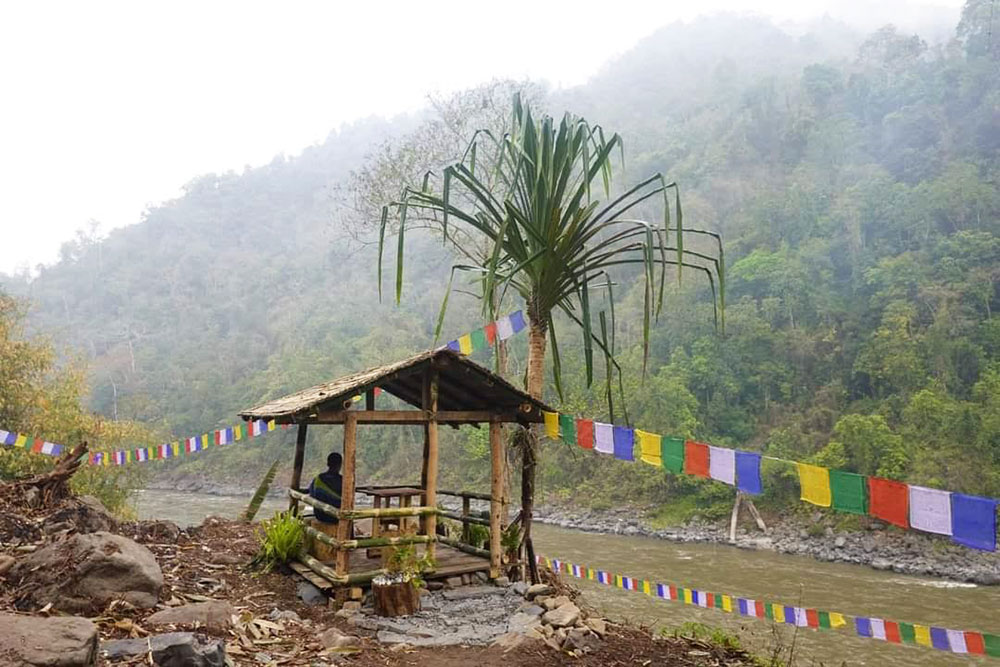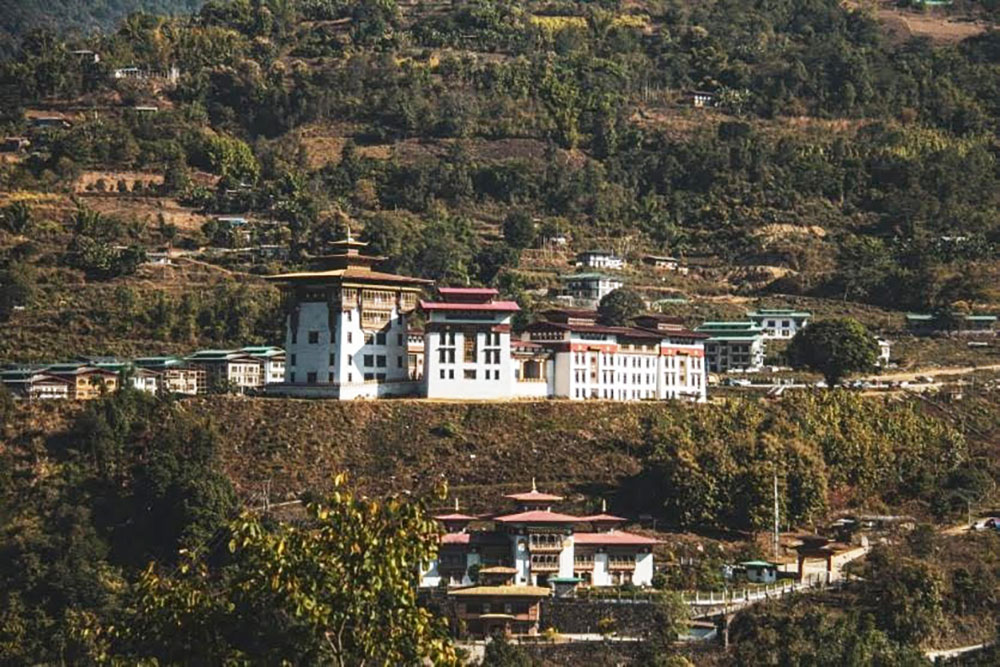Neten Dorji
Pemagatshel—With numerous places with potential for tourism, Pemagatshel dzongkhag administration is developing ecotourism infrastructure and branding the eastern district as an ecotourism hotspot.
This is despite the fact that the dzongkhag was not initially included in the list of dzongkhags for ecotourism development in eastern Bhutan. Currently, the dzongkhag administration is working on a comprehensive community-based ecotourism development plan as part of the 13th Plan.
Steeped in rich spiritual heritage, Pemagatshel boasts a wealth of cultural and natural assets, including local festivals, folklore, textiles and artisan villages, and historical narratives from the Duar Wars.
The dzongkhag is home to several sacred and historically significant religious and cultural sites: Yongla Gonpa, Jashar Gonpa, Kheri Gonpa, Dungkhar Gonpa, Tsebar Ngangrey (Jarung Kashor) Choeten, Dongdongma Lhakhang, and Khangma Khandom Choeten.

Lotus Valley Eco-Campiste is becoming a popular destination in Pemagatshel
The deputy chief planning officer of Pemagatshel Dzongkhag administration, Dawa Tshering, said that tourists can discover unique local products such as tshatshi buram, textiles like Thongsa Kamthangma, and religious instruments such as doong (horn) and jaling (clarinet).
The dzongkhag administration’s plan is to attract a modest 50 international tourists and more than 500 regional and domestic visitors to start with. The administration is developing a range of local products to meet tourism standards.
However, challenges such as its remote location—far from the international airport—along with inadequate road infrastructure and a lack of tourist-standard accommodations, have hindered its growth as a tourist destination.
The dzongkhag administration is encouraging potential investors to develop tourist standard hotels. “We have also identified about 38 interested homestays to enable tourists to experience the authentic lifestyle and way of life in Pemagatshel,” Dawa Tshering said.
Currently, one hotel is operational in Denchhi town, with another one ready to begin operations.
Since trekking is a popular nature-based tourism activity in the country, the dzongkhag has revitalised the traditional Salt Route, now renamed as the ‘Lotus Valley Eco-Trail’.
This scenic trail is home to over 57 bird species, including the rare Ward’s trogon, as well as a diverse array of butterflies, moths, orchids, and wildflowers—many of which are still yet to be discovered.
In the past seven months, Pemagatshel Dzongkhag has successfully established the Lotus Valley Eco-Campsite and initiated the development of the Gongri-Bali Eco-Lodge.
The economic development officer of the dzongkhag, Tshering Peldon, said that ecotourism offers a peaceful retreat for urban visitors, allowing them to reconnect with nature. “Urban people can immerse themselves in rural landscapes while helping bridge the socio-economic gaps between urban and rural communities.”
To address youth unemployment, the dzongkhag administration is encouraging youth participation in ecotourism initiatives. Currently, nine youth aged between 20 and 35 are engaged in the operation of two eco-campsites.
According to the latest Labour Force Survey Quarterly Report for 2024, Pemagatshel Dzongkhag has 212 unemployed individuals. Nationwide, the youth unemployment rate stands at 16.5 percent, representing a total of 6,885 unemployed youths.
Pemagatshel Dzongda Tashi Dawa said that the various ecotourism ventures would create business opportunities for the community and provide employment for young people.
“After we set up the ecotourism facilities, we outsource them to youth groups on an operate-transfer model, ensuring that the communities take ownership of these initiatives,” the Dzongda said.
However, he highlighted several challenges in promoting tourism, including a lack of expertise, fewer tourists visiting the eastern circuit, and limited promotion of the region by tourism stakeholders.
A youth entrepreneur, Tashi Dhendup, who operates the Lotus Valley Eco-Campsite at Yurungzampa in Shumar Gewog, said it has been a steep learning curve but worth it.
“This experience has allowed us to collaborate with various agencies, including the government, donors, and international organisations, to promote tourism in the dzongkhag,” he said. “Ecotourism holds great promise for the youth and the people of this dzongkhag.”
Member of Gongri-Bali Eco-lodge, Karma Rinchen, said that Gongri-Bali is a perfect site for bird watching, fly fishing, outdoor camping, river rafting and experiencing nature.
“It is the perfect place to watch a wide range of bird species such as Great hornbills, Rufous-necked hornbills, Barbets, Bee eaters, Collared treepie, Woodpeckers, and Laughing thrushes, among others,” he said.
He expects that the opening of Nganglam as an entry and exit point for tourists will boost tourism in the dzongkhag. “As a gateway to the east, Nganglam will create opportunities for business growth and tourism development, especially for regional tourists,” he said.
Pemagatshel dzongkhag administration has received a budget support of Nu 15 million from Helvetas and Nu 24 million from UNDP for tourism development. The Dzongkhag administration topped up additional Nu 14 million from the Dzongkhag Block Grant.


